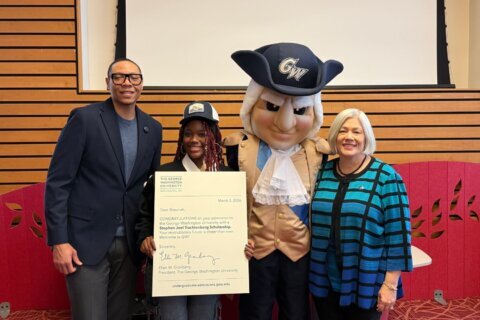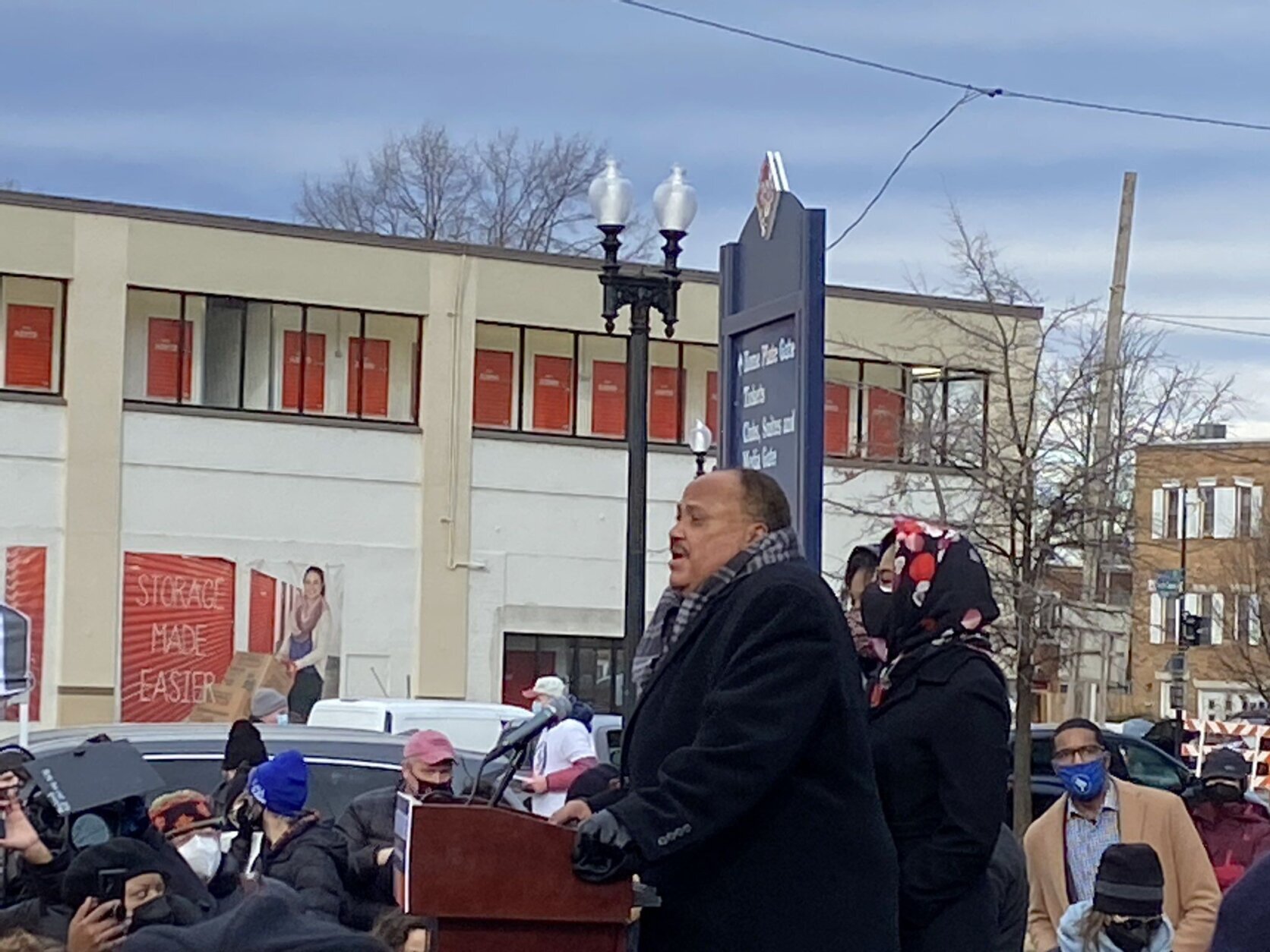
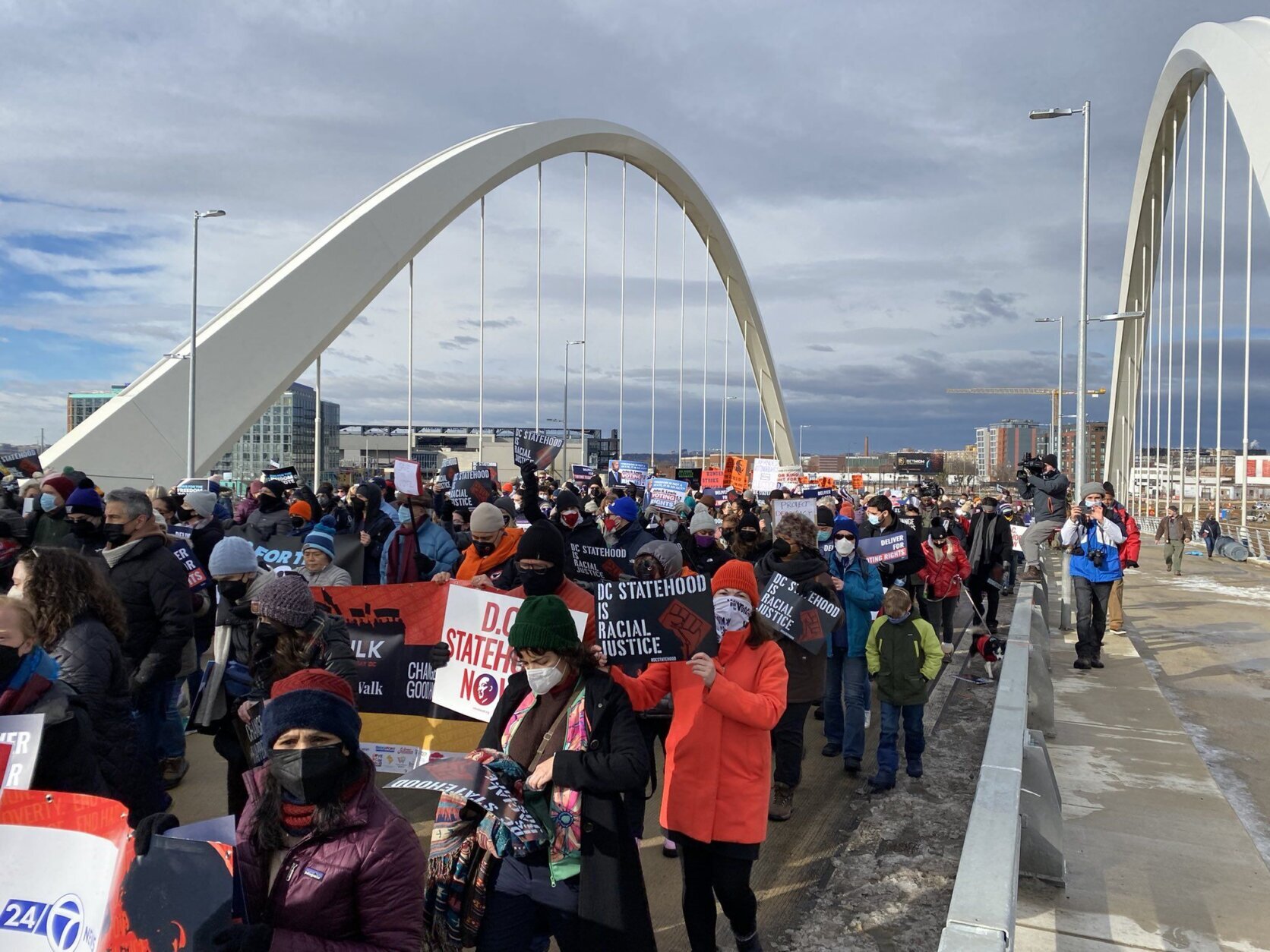
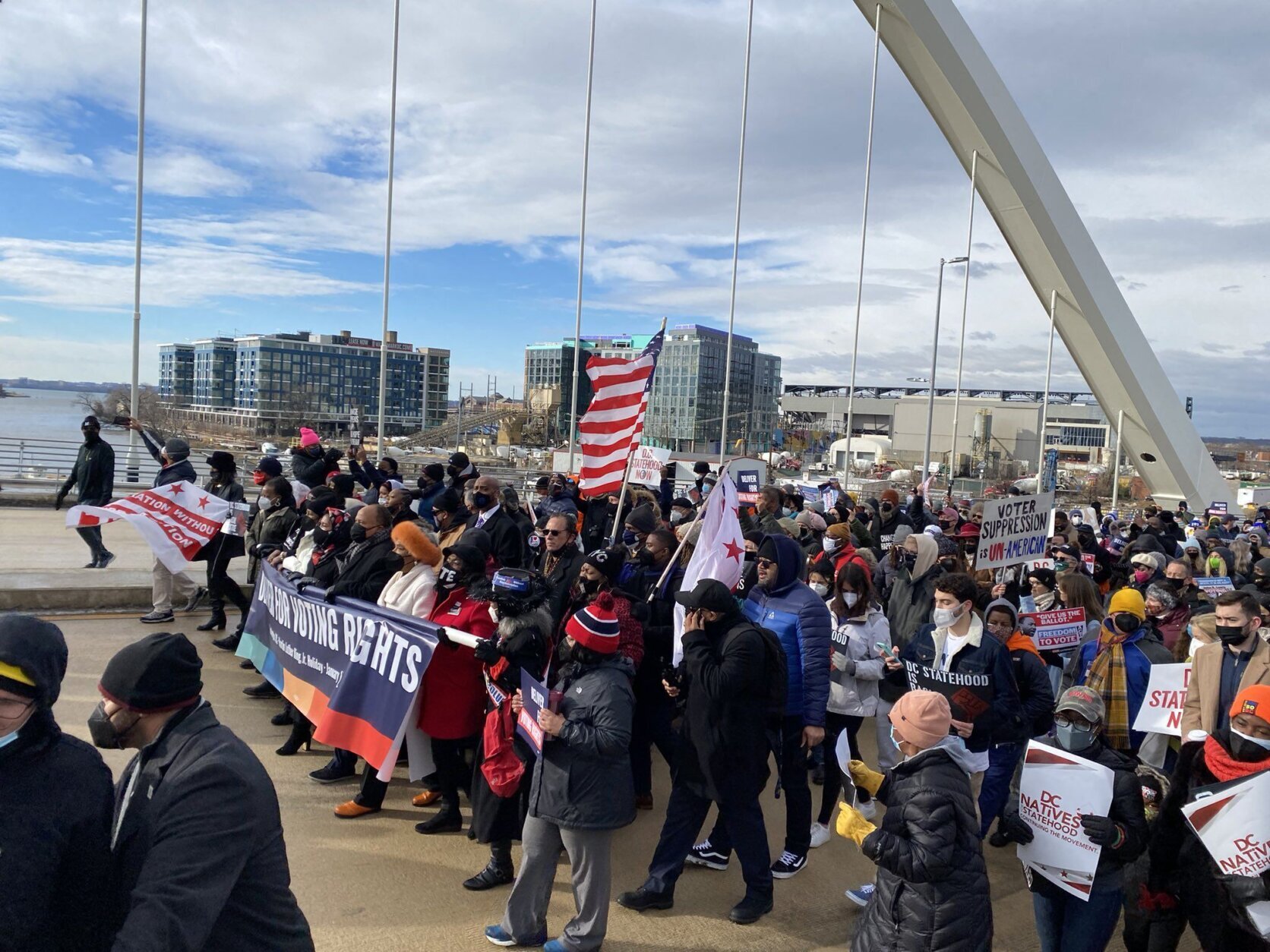
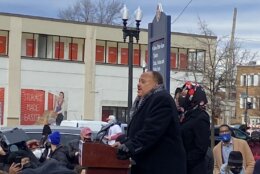
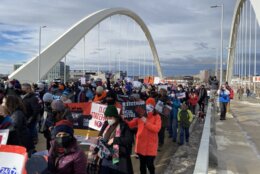
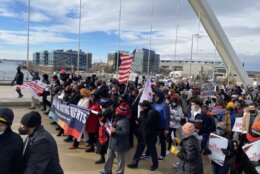
Hundreds of people walked over the Frederick Douglass Memorial Bridge during Monday morning’s cold weather as part of the 16th annual Martin Luther King Peace Walk, joining descendants of Martin Luther King Jr. as they crossed over the Anacostia River.
Voting rights was front and center for many participants.
“For D.C. residents, voting rights is still a major issue because we don’t have statehood,” said Kemry Hughes, one of the organizers of this event.
Nearby, Keith Silver walked around with the Stars and Stripes on his shoulder, but a version he said had 51 stars on it.
“This is more than an American flag,” he argued. “This is a D.C. statehood flag. We’re about D.C. statehood.”
But national legislation pertaining to voting rights was on the minds of most participants. Some of those who spoke argued for filibuster reform and stronger action from the Democratic-led U.S. Senate.
“Nineteen states have passed laws to make it harder to vote,” said Martin Luther King III. “Yet, my father, John Lewis, and so many others opened those doors many years ago. But today, we are here for this march across the Frederick Douglass Bridge to say to the president and the United States Senate, you were successful with infrastructure — which was a great thing — but we need you to use that same energy to ensure that all Americans have the unencumbered right to vote.”
“They are systematically targeting Black neighborhoods in the South that could actually swing districts and actually increase the amount of Democrats in office,” said Dave Hartful, a Northeast D.C. resident originally from Tennessee.
King’s wife, Arndrea Waters King, and his daughter Yolanda, also spoke ahead of the walk.
“We keep getting questions about if we’re tired,” Arndrea said. “And I say no. Are we tired? We’re not tired because we know the tones of democracy ring louder than the tones of division.”
Participants said it was no accident that the march went over the bridge named after Frederick Douglass.
“When you think about the Selma March and the Edmund Pettis Bridge, you think about bridges as a gateway to opportunity,” Hughes said.
“It’s Frederick Douglass’s bridge too,” said Hartful. “Really the original civil rights leader, and one of the greatest, kind of coming together.”




